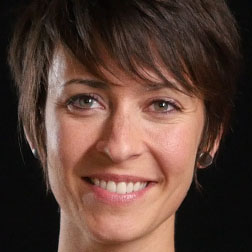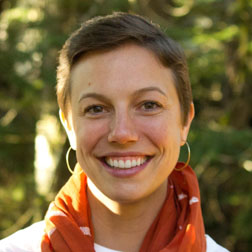I’ve always thought of myself as a no-drama type of guy, but when it comes to group facilitation, I think it’s actually the drama that lures me in.
A while ago I saw a TED talk by Andrew Stanton (screenwriter best known for “Finding Nemo” and other Pixar hits), where he quoted playwright Richard Archer who said “Drama is anticipation mingled with uncertainty.”
In terms of facilitation, that’s an equation I find myself in the middle of: The difference between my anticipation of what’s possible + the uncertainty that it will come to pass = The Drama.
My anticipation of what is possible when things “go well” comes from the best experiences I’ve had in groups—authentic, productive, touching, depthful, transformative connections and creativity between people. Group experiences at their peak. Yet my awareness of all the things that could possibly derail the experience—including my own cynicism, judgment, fear, ego, technical problems, unmanageable conflict, poor ground rules, etc.—also coming from my worst experiences with groups, produces an uncertainty that’s just as strong.
Right in the middle of the anticipation and uncertainty, there’s me. Conducting while listening, guiding while trying to constantly tune in to information about what to do or not do to best serve both my intention and the group’s collective intention.
It’s compelling drama, yes. Unfortunately, I sometimes feel like the main character.
And if I’m not careful, the drama might get the better of me.
Once, while facilitating a multi-day experiential event, I almost took it off the rails.
On the final evening of a very successful event, I planned to facilitate what I anticipated would be a peak, integrative, and touching experience for group. I had meticulously planned how to make it work with 150 people, designed the room set up, timing, and working it into the schedule. The stage was set.
Just about everything I could control was in place—yet when it came time, the group’s energy was going in a completely different direction. It was incoherent. Many people had shifted into party mode, and only about half were even remotely available to listen to me. Unfortunately (for my sake) I ignored this, convinced that I or the experience could shift the tide for everyone.
To make things worse, microphone setup was late. So naturally, eager to make it across the growing chasm of uncertainty, I found myself yelling to gather attention and give instructions on what would have been a quiet, reflective exercise. (I appreciate irony more when it is happening to other people.)
At best I could grab the group’s attention for 15 seconds—it was chaotic. And at one point I found myself literally doing an impression of a chicken just to light heartedly get the room back. As good as the impression was, a flightless bird actually was an apt metaphor for how things were going.
After a couple clunky attempts, (thankfully) it dawned on me that I had overlooked how off schedule we were, and failed to notice how long the open bar had been open. The room was a completely different energetic playing field. I realized I was flailing. There I was, looking for a way through, a way to still provide emotional depth and celebration, a way to get back on schedule and be congruent with the group.
It was only when I actually paused mid-flail to notice what was happening did I see the opportunity sitting right in front of me. It was there all along, next on the schedule even: an improvisational music and spoken word jam. A peak, integrative, and touching experience. It couldn’t help but flow and be in concert with whole room. I just needed to drop my attachment to my plan and what I was anticipating things would look like.
That’s where I saw the difference that made a difference. It wasn’t my attachment to my aspiration or my intention that was the problem. It was my fixation on HOW that was going to happen that was taking me off the rails.
And what’s more, my commitment to my aspiration wasn’t a bad thing. In fact, it was because I was completely committed to my intention that I was able to let go of my plan and recognize the opportunity staring me in the face –and how much better suited it was to the moment than what I was trying to pull off.
For me, this insight reveals the finest of fine lines in the drama of facilitation. How do I prepare fully and invite people into a transformative experience, yet without pushing them into what I’m fixated on creating?
My ongoing quest—my developmental edge—is to discover the intersection between the right amount of structure & planning and enough room for freedom and creative emergence.
The axis of executing on what I have to offer and attending to what the group most needs is my most satisfying drama—and where they intersect is my facilitator’s sweet spot.
Based on my experiences, here are a few clues I’ve distilled that tell me I might be fixating on form rather than intention:
- The group starts to feel incoherent, chaotic, or bored.
- I start to get frustrated. Why aren’t these people cooperating?
- I find myself impersonating farm animals.
- Or more to the point—I start to feel like an entertainer on stage.
- I feel like I’m flailing in the dark.
So if you’re anything like me in this regard, here are a few responses that help me re-orient in the midst of the drama:
- When you get that feeling that you’re out of synch with the group, slow down.
- Get curious about the difference between what your intention is, and how you’re going about getting there.
- Listen for the feedback you’re getting from the room–especially if it hurts.
- Reconnect to the core of why you’re there: what you care about offering to the group as an instrument in service of its intention.
- Ask if there is anything you could let go of that would make things easier for everyone.
Look for the direction the group is leading you, and be willing to follow it and be creative in service of the group’s intention.
I hope you’ll take a minute and leave a comment below—especially if you’ve got things to add to my list of clues, or my list of responses in the moment.
Pete Strom
Training Staff, Consultant, Integral Facilitator
Ten Directions


6 thoughts on “Facilitating Drama: When to impersonate a chicken”
“Fixating on the form rather than the intention” speaks volumes to me. I do events all of the time and this will be referred to often as an archived nugget of gold. I’m only sorry you had to cluck like a chicken to gain the insight , at the same time I would love to have been there to see that.☺️? Thanks for your transparency.
Pete – I share Diane’s desire to have seen you cluck like a chicken :). I loved reading this and your insights.
Thanks for this–great insights and demonstration of your desire and capacity to learn from experience. Please just add a little audio clip of you as chicken! Seriously, thanks for the powerful messages.
I love this post–it’s so clear and well -written. I felt like I understood what you were going through, Pete, which allowed me to learn right along with you. Thank you.
Hello Pete…..thank you for your insights. I actually found myself to be very emotional as I read your experience because hearing your remind me and other facilitators that we need not be so tied to ‘our’ intention is a bit liberating. I was also thinking about the times when I did not allow myself to be set free from my own intentions. Listening……really listening………and noticing………..is actually proof that you trust the power of the collective. Sometimes in my desire to bring a group to a certain place or way of thinking, I forget that they have the power to do this themselves…….I just need to get out of their way. And out of my own way sometimes. Thanks for reminding me.
I love chickens. I used to raise them. They are actually quite social birds, communal, intelligent in their own way, with a broad range of vocalizations and social behaviors. They taught me a lot about group facilitation. But what I appreciate the most of what you’ve shared is your deep desire to do whatever you need to do to attune yourself and flow with the group, while bringing forth what you have to offer. It’s always an art form of the highest order. A true gift for our times as globally we seem to be descending into greater and greater chaos.